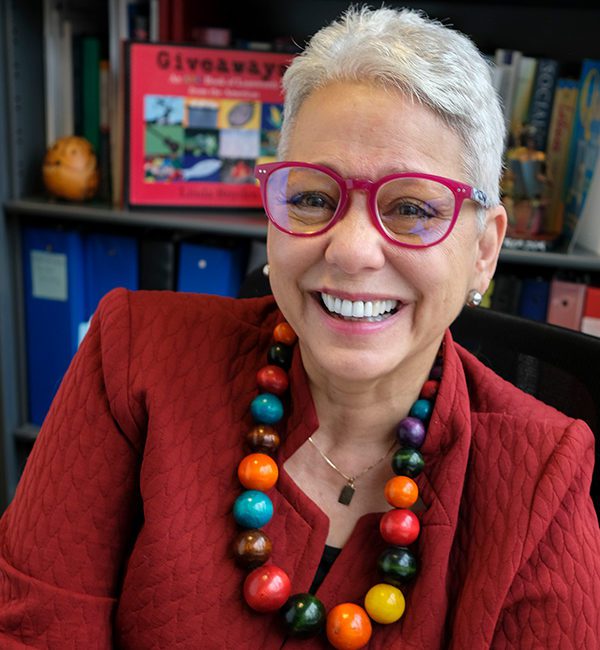Did you know that Erikson was the first program in Illinois to offer a Bilingual/English as a Second Language (ESL) certificate program for early childhood educators? We are celebrating 20 years of our ground-breaking work this year!
In 2002, Erikson Institute responded to the need for a program that specifically provided licensed teachers serving children birth to age eight with a pathway to obtain their Illinois State Board of Education (ISBE) Bilingual and/or ESL endorsement. Erikson’s Bilingual/ESL Certificate program was the brainchild of Dr. Aisha Ray, Professor Emerita of Child Development and Barbara Taylor-Bowman, professor, and co-founder of Erikson.
Both Barbara and Aisha had first-hand experience as early childhood educators and advocates for quality programs serving racially, ethnically, and linguistically diverse children and families. Their in-depth understanding of research about young multi-lingual learners firmly grounded their effort in the most current knowledge of the field. Together, they launched the first graduate-level certificate program for early childhood educators in Illinois. We asked Dr. Luisiana Melendez, clinical professor, who directs the program, to tell us about its past, present, and future.
A native Spanish-speaker from the Dominican Republic, Luisiana immigrated to the United States as a child. She has a passion for supporting educators and students in dual language classrooms and believes the biggest thing teachers and administrators need to understand is that the better a child learns their first language, the better they will learn their second language.
Luisiana, how has our program evolved over the years? For example, “bilingual” and “ESL” are no longer the only terms we use to describe children whose first language isn’t English, correct?
Luisiana: The terms English as a Second Language (ESL) and bilingual are the two most commonly used in the Unites States. Mainly because we are a country of immigrants, English is the language that allows immigrants to communicate with each other and with the monolingual English speakers.
Nevertheless, bilingual and ESL are not universally preferred labels to use when referring to linguistically diverse individuals. In the case of bilingual, the term is limited, as many children grow up exposed to multiple languages, not just two. The label ESL highlights the learning of English while obscuring the centrality and importance of the other language or languages that the child is learning. Therefore, using the term “multilingual” is more representative and inclusive. It is also important to note that spoken language is not the only type of language–there is sign language, learning to code is considered learning a new language, as well as being able to read and play music.
Erikson’s Bilingual/ESL Certificate Program retains that name for practical reasons related to state accreditation. However, the program keeps current in every other way by keeping abreast of the incredible strides in the research about young multilinguals’ learning and development and engaging Erikson students in the intentional application of that knowledge to their practices.
Who should consider enrolling in our Bilingual/ESL certificate program?
Luisiana: The certificate program was designed for early childhood educators who want to support young multi-lingual learners. In alignment with Erikson’s focus on child development, the Bilingual/ESL Certificate Program provides practitioners with the knowledge and skills to integrate and apply current research, refine practice skills for teaching and assessing young multilingual children, and examine the role that culture, community, and family plays in creating effective programs and classrooms for emergent multilinguals.
At the same time the program creates the space for Erikson students to reflect on how their own experiences and backgrounds frame their educational practices, and how they can best support students and their families in ways that are not only culturally responsive, but culturally sustaining.
As the number of children growing up with more than one language in the U.S. steadily increases, so does the need for educators that understand the importance of honoring families and children’s language, heritage, and culture, while applying knowledge about multilingual development to their instructional practice. My hope for the future of the program is that the needs of emergent bilinguals/multilinguals are recognized for what, I believe, is an issue of equity that deserves to be part of any conversation pertaining to teacher preparation and program quality.
What did COVID bring to light about young bilingual/multilingual learners?
Luisiana: Like every institute of higher education, COVID has had a significant impact on our students and the populations that we serve. COVID had a tremendous impact on teachers working with emergent bilinguals/multilinguals because teaching and learning remotely and through a screen puts additional cognitive and linguistic demands on both the instructors’ pedagogy and the students learning. To address this, one of the certificate program’s faculty, in collaboration with Erikson’s Technology in Early Childhood center, did a workshop on pedagogical strategies that could support emergent bilinguals/multilinguals having to learn remotely.
What future directions do you see for Erikson in the multilingual learner space?
Luisiana: Our current president, Dr. Mariana Souto-Manning, believes in our vision for multilingual education, as seen in this statement: “Erikson has been a trailblazer in early childhood multilingual education for two decades, ensuring that teachers are prepared to build on the rich communicative practices of multilingual children. I am honored to build on these monumental contributions with innovative academic programming for our graduate students. Educators need to be prepared to identify, cultivate, and sustain the rich communicative practices and sophisticated linguistic repertoires young multilingual learners have, positioning these as essential resources for teaching and learning in the pursuit of equity and justice.”
For further information on our Bilingual/ESL Certificate program please visit our website. If you are interested in any of our degree programs, please reach out to the Enrollment Team.

Join the Erikson family with monthly news + events updates shared by academics, community members, and families.